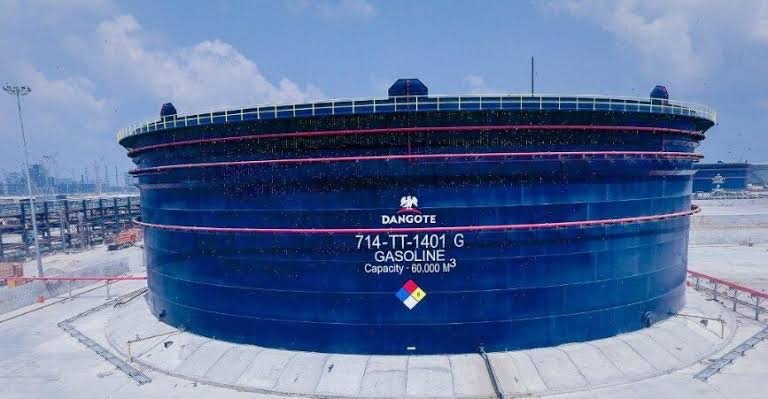KEY POINTS
- Dangote refinery to export over 200,000 metric tons of gasoline due to low local demand.
- Higher fuel prices and increased quality standards challenge affordability for Nigerian consumers.
- Regional buyers like Ghana and CARICOM express interest in importing Dangote’s gasoline to reduce European import dependency.
Nigeria’s Dangote refinery, a 650,000-barrel-per-day facility designed to end the country’s dependence on imported fuel, will export gasoline for the first time due to unexpected local demand challenges.
An official confirmed that the refinery has signed export orders for over 200,000 metric tons of gasoline, and shipments will commence once vessels are in place.
Dangote refinery faces local demand and price challenges
Originally expected to serve Nigeria’s 340,000-barrel-per-day gasoline needs, the refinery has faced headwinds since ramping up production in September.
Enhanced quality standards, including a sulfur content below 50 parts per million (ppm), have raised prices for consumers already facing a fivefold pump-price increase from a year ago.
Nigeria’s downstream regulatory authority recently predicted a possible 25% drop in domestic demand due to these affordability issues.
On October 29, refinery CEO Aliko Dangote said the plant held over 500 million liters of unsold gasoline in storage, citing competition from illicit low-cost imports.
The refinery is also considering legal action against the Nigerian National Petroleum Corporation (NNPC) for continuing its own fuel imports, despite an earlier exclusive supply agreement.
Growing international interest
In November, Dangote issued a tender for 40,000 metric tons of gasoline for export, later revised to support exports after public concerns.
Dangote’s high-quality fuel has attracted regional interest, with Ghana’s NPA CEO Mustapha Abdul-Hamid seeking alternatives to expensive European gasoline.
Discussions with Caribbean leaders suggest future agreements with CARICOM countries for cost-effective imports. The refinery’s gasoline trades at a $50-per-ton premium over European prices, reflecting strong regional demand. As Dangote shifts focus to exports, Nigeria faces challenges balancing local needs with growing global demand.



